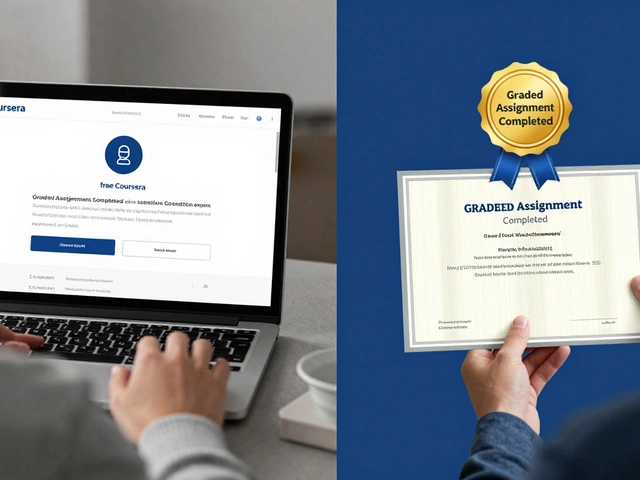Picture this: A room full of people, everyone chatting in English, and you want to jump in but hesitate. Sound familiar? Most folks have been there. The dream of speaking English smoothly is universal—from job interviews to traveling, even just making new friends. But the path to fluency is rarely straightforward. There’s no miracle hack. The truth: even native English speakers mess up on words sometimes! Yet, what separates confident speakers from shy ones? It’s not just talent. It’s about the clever ways you practice and the mindset you bring to every conversation.
Why Speaking English Is So Challenging for Most Learners
Let’s get real—talking in English isn’t just about learning words. If that were true, dictionaries would make us all fluent! One big reason people struggle? English is packed with weird exceptions and phrases that don’t always make sense (why do we park in a driveway and drive on a parkway?). On top of that, not every school teaches actual speaking—most focus more on grammar and writing.
Did you know that, according to the British Council, about 1.5 billion people are learning English globally right now? Yet the vast majority only ever use it in exams or reading. When it’s time to talk, nerves take over. Why? There’s this pressure to be perfect. Many learners feel embarrassed by their accent or worry they’ll forget words. But here’s the twist: the world cares far more about understanding your message than your perfect grammar.
Your tongue feels tied because speech happens in real time. No Google Translate to bail you out, no time to reach for your phrasebook. This stress triggers what’s known as the affective filter—a fancy linguistic way of describing how nerves and fear block language. The more anxious you feel, the harder it is to remember what you’ve learned. The result: all those English lessons evaporate when you try to speak.
Another hurdle: most people practice English alone or only with a textbook. But speaking is like riding a bike—you have to wobble and fall a bit to finally balance! Studies from Cambridge English found that active conversation—even five minutes a day—leads to faster improvement than hours with grammar exercises.
So, it’s not only about knowing English—it’s about actually using it, messing up sometimes, and learning as you go. If your vocabulary feels stuck, or you always freeze when someone says “hello,” you’re not alone. Plenty of clever tricks can help you get unstuck fast.
Building a Strong Foundation: Listening and Mimicking
It may sound surprising, but speaking starts with listening. Really hearing how English sounds in daily conversation is the backbone of good pronunciation and natural speech. Think about how babies pick up language: they listen long before they try to talk. This trick works at any age. Streaming platforms like Netflix or YouTube can be your free classroom—a recent poll shows 70% of language learners report TV and movies help them speak better.
Start by picking a favorite show, podcast, or even short TikTok videos in English. Don’t just listen passively. Pause and repeat what you hear. Try to copy the intonation and emotion, not just the words. This method is called “shadowing,” and language teachers swear by it. Actor Tom Holland, who plays Spider-Man, used shadowing to nail his American accent. Copy someone whose style you like. Force yourself to speak out loud—even if your family gives you funny looks!
You can also break sentences into small chunks. Mimic how native speakers link words (“gonna” instead of “going to”). This makes your English sound more natural. Pay attention to contractions, stress, and rhythm. In English, stress matters—a wrong emphasis can lead people to misunderstand you. For instance, 'record' (noun) and 'record' (verb) change meaning depending on stress. Practice with tongue twisters for a fun challenge: “Thirty-three thousand feathers on a thrush’s throat.” See how much easier speaking gets when you focus on rhythm?
Listening apps and language podcasts can help you fill “dead time”—while commuting, waiting in line, or even during workouts. There’s no need to understand every word. The point is to tune your ear and train your mouth. Think of your voice as a muscle; the more you use it, the stronger it gets.
Here’s a cool stat for you— according to an EdSurge survey in 2023, language learners who spent just 15 minutes each day listening and mimicking real English saw a 22% increase in their confidence to speak within two months. Yes, just by talking to the TV!

Speaking Regularly: Finding Real-Life Practice (Even When No One Is Around)
The single biggest breakthrough for most learners is speaking with real people. But not everyone has an English-speaking friend just waiting for a chat. So what do you do? Technology to the rescue! Apps like HelloTalk, Tandem, and Speaky connect you to real speakers around the globe—no passport needed. You can swap languages, chat by text or voice, and set your own schedule. Thousands of conversations get started every minute on these platforms.
But you don’t even need a partner to practice speaking. Talk to yourself: narrate your morning routine in English, describe your lunch menu, or argue with the news anchor on TV (quietly, unless you want funny looks). A recent experiment among learners showed that self-talk helped reinforce vocabulary and reduce anxiety when switching to real conversations.
If you’re feeling bold, join an online group or club. Most cities have language exchange meetups, but online options are endless. There are Discord servers and Facebook groups just for English chat. Don’t feel shy about starting topics—most folks feel grateful someone breaks the ice.
Small talk is your secret weapon. Practice the classics: weather, movies, food. It’s not boring; it’s the backbone of conversation everywhere. Eventually, you’ll branch out to deeper topics, but even pros start with “Nice to meet you, how are you?”
Here’s a table that shows some popular resources and activities for English speaking practice:
| Resource | Type | Best For | Cost |
|---|---|---|---|
| Duolingo Speaking Challenges | App Feature | Daily Short Practice | Free w/Ads |
| HelloTalk | Social App | Language Exchange | Free/Paid |
| Online Meetup Groups | Virtual Event | Live Conversation | Free/Donation |
| Speechling | Online Tutoring | Accent & Feedback | Free/Paid |
| Self-Talk | Solo | Fluency Building | Free |
Mix up your methods. If you do the same thing every day, your brain zones out. Try a voice recording app—listen back to track progress. Challenge yourself to use new words, even if you butcher the pronunciation. Mistakes are proof you’re pushing forward. Remember, the world is full of accents—your unique voice matters.
Expanding Your Active Vocabulary and Correcting Mistakes
You probably understand more words than you use. But when it’s time to speak, your brain grabs just a handful. This is totally normal! The trick: turn “passive” words (ones you recognize but don’t use) into “active” ones (words you can say without thinking).
Flashcards help, but conversation is better. Every time you learn a new word, try using it in a real sentence—better yet, in a conversation. Don’t be scared to sound silly. The fastest way the brain remembers? By making mistakes. Psycholinguists at MIT found learners who “experimented” with new words out loud remembered 35% more vocab than those who played it safe. Go ahead and mess up—you’ll remember the word next time.
Correcting mistakes is part of the deal. Here’s a quick way to get better: ask for feedback. Partners, tutors, or even language bots can help you spot patterns (“You always mix up ‘much’ and ‘many’ ”). Keep a little “mistakes journal.” Write down your common errors, then make up goofy sentences to drill the fixes. It’s way more memorable than mindless drills.
Another underrated tip: use word families. Don’t just learn “decide,” but also “decision,” “decisive,” “indecisive.” This gives you more ammo for speaking and helps you express ideas more clearly. Apps like Anki let you build custom decks just for these word connections.
Storytelling is a secret weapon. Practice telling a simple story or anecdote—maybe what happened to you yesterday. Stories naturally make you use more tenses, connectors, and descriptive words. They also make conversation more interesting for everyone involved.
If you get stuck for a word, skip it and explain yourself another way. This is called “paraphrasing,” and native speakers do it all the time. Nobody will judge you for working around a tricky word. The more creative you get, the more fluently you’ll sound. Remember, the aim isn’t to impress someone with big words. The goal is to get your message across smoothly, clearly, and confidently.

Mental Hacks: Overcoming Fear and Building True English Confidence
Even when people know the grammar, memorize words, and practice out loud, a lot get tongue-tied in real conversations. Why? The brain loves to play tricks. Fear of embarrassment or making a silly mistake makes most learners freeze up. But English is about communication, not perfection.
Here’s the real deal: nobody expects you to sound like a news anchor. Most people love hearing your accent—it tells them about your story. Flip the script: instead of dreading mistakes, see them as wins. Every awkward pause or slip-up is one step closer to automatic speaking. Did you know polyglots—folks who speak five languages or more—make tons of mistakes on purpose just to speed up learning? Fearless talking is their superpower.
Remind yourself why you want to learn. Maybe it’s for career goals, travel, or just the joy of a new skill. Keep that reason nearby—a sticky note, phone wallpaper, or even a reminder on your calendar. Motivation is a huge part of fluency.
Start small. Rather than aiming for a 20-minute conversation, shoot for three sentences with a stranger, or two minutes on the phone. The little wins stack up. Celebrate your progress, no matter how minor. Record a voice message now and compare it to one in two months—nothing beats hearing real growth.
Visualization helps too. Professional athletes imagine success before a race. You can do the same: picture yourself owning a conversation, handling questions smoothly. This mental “rehearsal” actually primes your brain and reduces anxiety.
Tech can help nail down nerves, too. Some folks use AI chatbots or simulated interviews for practice. Others try breathing exercises before speaking. Find what works for you. The point is: action beats worry every time.
Here’s the bottom line. More English speakers exist outside native English-speaking countries than inside. In fact, only about 25% of all English users are “natives.” The rest? People just like you—making mistakes, improving every day, and still getting their point across. Your voice adds to that global chorus. Mess up, laugh it off, and keep going. That’s what true English confidence looks like.




